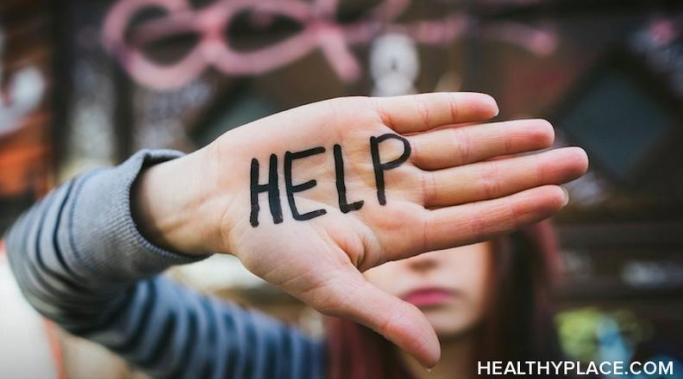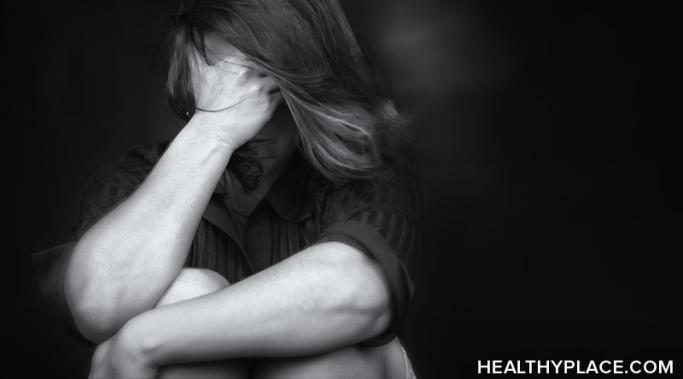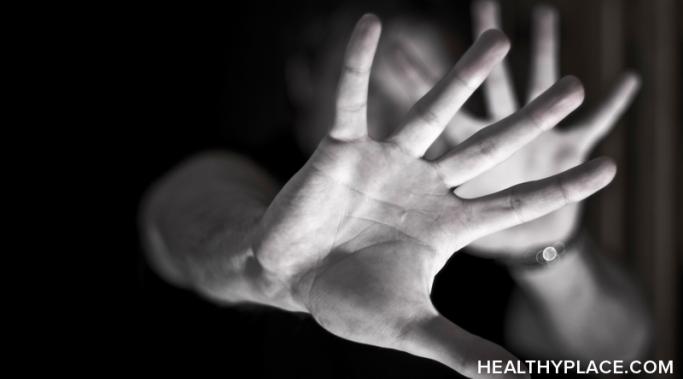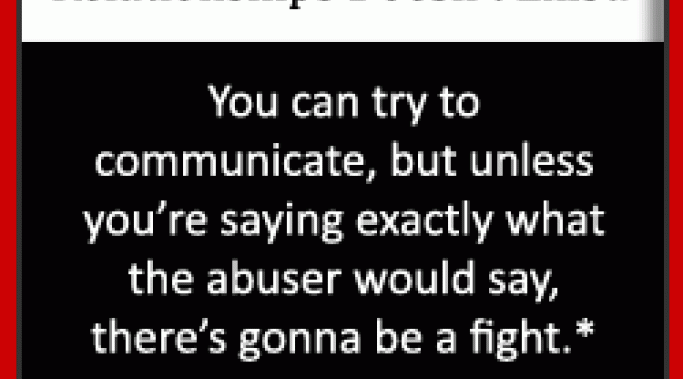What is the definition of abuse? What counts as domestic violence? People search for versions of those questions thousands of times each month. Are there really so many people who do not know any definition of abuse?
I don't think so. I think victims continue searching for the definition of abuse because they want to believe their loved one does not abuse them. Victims would rather believe that they, in fact, are as crazy as their abusive relationship makes them feel. They want the definition of abuse to be something other than what they read on that last website.
Signs and Symptoms of Abuse
"You need therapy!" he yelled at me. Will, who didn't believe in therapy, was right. I did need therapy, but not for the reasons he insinuated. I needed therapy during my abusive marriage to help me pull myself back together. I mean that literally.
Abuse pulled me apart, diced me in pieces, added a quart of my abuser's personality, threw out most of mine, and then to remolded me into a meatloaf. Baked at 400 and set on the counter to cool, I wondered "What the heck just happened?!" I knew I was different, but I didn't know why and couldn't remember how, so I started on my quest to learn to like myself the way I was.
Only 33% of teens who were in an abusive relationship ever told anyone about the abuse.~Liz Claiborne Inc., Conducted by Teenage Research Unlimited, (February 2005).
Two of three teens being abused tell no one about their abuse. They don't tell parents, mentors, or friends. The victim's shame and hope that the abuser will "see reason" and either leave them alone (bully) or love them (dating abuse) become barriers to his or her communication with people who want to help.
Although I would like to think my child is the 1 in 3 who report bullying or dating abuse, the odds are stacked against me. So, last night, as I hugged my 15 year old before bed, I asked him if anyone had bullied him at school or online.
Surprisingly, he said, "I don't know." And then, more surprisingly, he said, "I don't know what that would be like."
Teenagers stand on the brink of discovering who they are. It's a magical time, full of opportunity and promise. Teens have the advantage of constant contact with their peers and adult role models via personal phones and the Internet's vast array of video chat, picture sharing, social networking, and all the rest. Teens are connected in ways we couldn't be at their age. Like so many other great possibilities, this connectedness can be both a blessing and a curse.
This month is Teen Dating Violence Awareness and Prevention Month. Why do teens get their own month? The signs and symptoms of teen dating abuse are the same as domestic abuse, so why can't the kids just read our grown-up sites? They've always gotta be so hard-headed!
Much of the information you'll read about teen dating violence awareness this month focuses on girls and young women. If the boys and young men are mentioned, it will probably be on a page designed to help them change. As the mother of two teenaged young men (Marc and Eddie) and a survivor of domestic abuse, I feel compelled to share my perspective.
My ex-husband expertly diverted many of our arguments by accusing me of mishandling my baggage. Two examples spring to mind:
I did not ever deal with the rapes, and therefore I hated men and he couldn't talk to me,
I idolized my mother and her decision to leave my dad (for another man, in his opinion), and therefore I was not committed to our marriage and he couldn't talk to me.
Back in the day, hearing these statements led me directly into self-examination or defiance. If I told him I would think about what he said (self-exam), then I only considered his take on the matter (Do I hate men? Am I unsure of my commitment?). Of course, immediate defiance put me squarely in a defensive position, directing the argument into a series of "You always" and"You never" statements that escalated and diverted the argument from the actual topic.
I lived with an abusive man for 18 years, but truthfully, I didn't understand (or want to acknowledge) that he was abusive for 17 of them. I finally realized what was happening to me a bit more than a year before I left. During that year, I faithfully believed that he would also realize how his behaviors were affecting his family. I thought if I could somehow break through the illusion then he would see, and, more than that, he would want to change.
I failed in my efforts to change him, and that is how it is supposed to be. However, in my control-seeking quest to change my life by changing him, something remarkable happened. I changed my self. In the process, I kept track of what worked and didn't work for me. Perhaps you can identify with both my mistakes and successes.
The solutions to ending verbal, mental, emotional and physical abuse are disheartening. We tell families of abuse victims: "There's nothing you can do until s/he's ready to accept what is happening." We tell abuse victims: "The solution to your problem is inside of you. No one else can solve this problem for you."
The "solutions" seem mystical, magical...untouchable. The solutions leave abuse victims, already reality-impaired, with the sense that all they can do is wait and hope that someone or God will eventually flip the switch and life will become sweet. The solutions feed into the theory of co-dependency which in part states that at some level, co-dependents wait for rescue instead of using their innate powers to change their situation.
Communication in abusive relationships is like communicating with someone who cannot see or hear you and knows no word that describes the idea of someone who isn't me. When your abuser talks at you, they are talking to themselves.
Communication in abusive relationships is an all or nothing fight to the finish. Whether you're discussing the shade of towels for the guest bathroom or what elderly care facility Aunt Polly needs, the abuser expects you to say what s/he would say. Nothing more, nothing less, and definitely nothing different.
The only one who will ever attempt real communication in abusive relationships is you.









